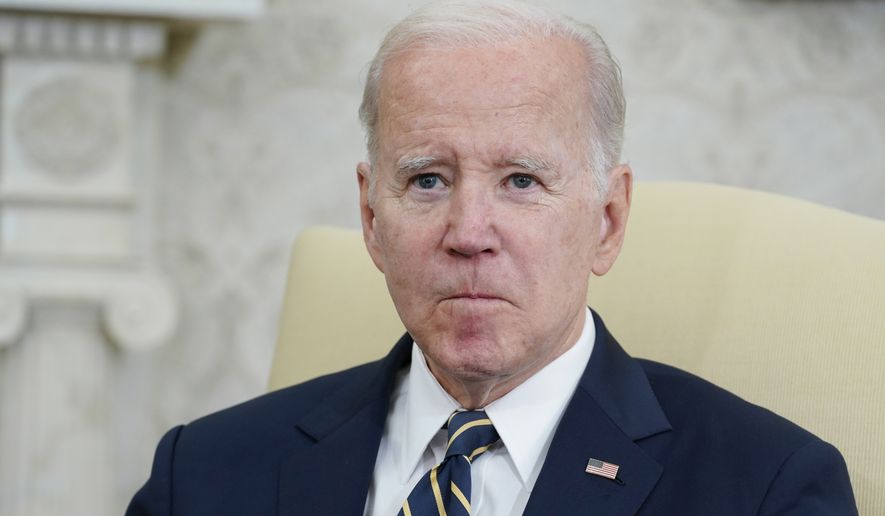President Biden has commuted the sentences of 31 drug offenders who were labeled as nonviolent, as part of the administration’s efforts to expand economic opportunities and ease reentry for formerly incarcerated individuals.
The announcement Friday was part of what Mr. Biden declared “Second Chance Month,” an effort by more than 20 government agencies to help those with criminal records restart their lives.
Susan Rice, director of the White House Domestic Policy Council, told reporters the moves will improve public safety by increasing opportunities for those with criminal records.
“By investing in crime prevention and a fairer criminal justice system, we can tackle the root causes of crime, improve individual and community outcomes and ease the burden on police,” she said.
As Mr. Biden gears up for the 2024 presidential race, crime is again expected to be a hot topic for voters. A study released this week by WalletHub found that homicide rates in U.S. cities have increased by more than 10% over the past two years. Memphis, Tennessee, New Orleans, Richmond, Virginia, the District of Columbia and Detroit logged the most killings, the study found.
Researchers attributed the rising homicide rates to progressive policies, including no-cash bail, reduced sentencing and the defund-the-police movement. Although Mr. Biden has pushed back on defunding the police, he has embraced criminal justice reform proposals.
The president’s action brings the total number of offenders whose sentences were reduced by Mr. Biden to 106, according to Justice Department data. He previously commuted the sentences of 75 nonviolent offenders in April 2022.
Former President Donald Trump commuted the sentences of 94 individuals during his four years in office.
In October, Mr. Biden issued full pardons for thousands of people convicted of marijuana possession under federal law and pushed the nation’s governors to do the same at the state level.
Progressive Democrats and criminal justice advocates had been pressing Mr. Biden to do more to fulfill his campaign promise to use his executive authority to address mass incarceration and racial disparities in the justice system.
Those disparities and incarcerations were accelerated through a 1994 crime bill that Mr. Biden authored while in the Senate, which critics say disproportionately affected people of color.
The White House said the offenders whose sentences were commuted Friday are all nonviolent offenders who had already been moved to home confinement. Many would have received a lesser sentence if they were charged with the same offense today because of reforms to the criminal justice system, including the First Step Act signed into law by Mr. Trump in 2018.
At the time of their commutations, the 31 people were already taking advantage of education and employment opportunities, the White House said.
Among those whose sentences were reduced include Bongani Charles Calhoun, who was convicted in 2011 on drug and gun charges. He appealed his conviction to the Supreme Court, arguing that a prosecutor’s remarks about his race improperly tainted the jury.
Scottie Ladon Dixon of Altmore, Alabama, also had his sentence commuted. He was sentenced to life in prison for crack distribution in 2010 because of his history of drug convictions. His original sentence was reduced to 10 years in August 2016.
Connie Avalos of Riverside, California, was sentenced to life in prison in 2009 for conspiracy to distribute methamphetamine. Her life sentence, which was based on her history of drug convictions, was reduced to 19 years by then-President Barack Obama in January 2017. Under Mr. Biden’s commutation, her sentence will expire in June.
In addition to the clemency actions, the Biden administration released plans to help released offenders rebuild their lives. The more than 100 actions will be implemented by 20 agencies, including the Treasury, Education and Justice departments.
Under the changes, released offenders will have increased access to government housing, Pell Grants for education, small-business loans and food benefits. Individuals will have an opportunity to access Medicaid and increased access to medications for opioid use disorder.
“Education, employment, health care, housing and successful reentry all help prevent crime and reduce recidivism,” Ms. Rice said.
• Jeff Mordock can be reached at jmordock@washingtontimes.com.




Please read our comment policy before commenting.